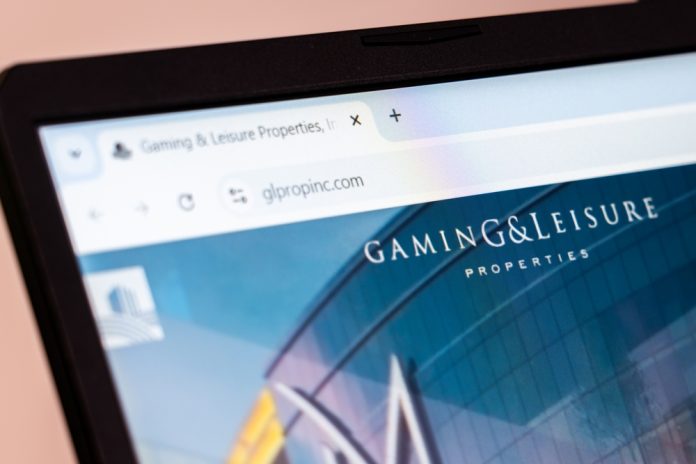Friday, July 25, 2025 12:26 PM

During Gaming & Leisure Properties Inc.’s second quarter 2025 investor’s call, a question was asked about why the focus was often on what could go wrong with some of the company’s projects.
Chairman and CEO Peter Carlino responded quickly, noting he was rarely asked what was going right.
“In fairness, Chicago (the casino project with Bally’s) raises some questions. I think Bally’s credit, not unfairly, raises some questions,” Carlino said. “We’re sensitive to that.
“But as I think we said earlier, we look at these projects on a unit-by-unit basis, and we’re satisfied that if everything develops as we plan, that things will be fine. We’re happy with kind of where we find ourselves.”
Gaming & Leisure Properties posted revenue of $394.4 million in Q2 2025, compared to $380.6 million in the same quarter of 2024, a 3.8% increase. Adjusted funds from operations were $276.1 million, a 4.4% increase compared to the same period in 2024, and Adjusted EBITA was up 6.2% to $361.5 million.
The Chicago project has been beset by delays. Initially scheduled for a September 2026 opening, Bally’s has stated the casino will now open sometime in 2027. Carlino noted that other projects with Bally’s, including the Queen Baton Rouge and the Belle of Baton Rouge, are successful.

He has no doubts Chicago will follow in those project’s footsteps, with GLPI’s head of construction, Jim Baum, onsite every week and with a team of GLPI employees tracking costs, bills and invoices.
“The project’s moving along pretty quickly,” Carlino said. “Over 100 people are working that site every day right now. We feel pretty good about that. So, at the moment, things are looking good.”
Carlino added that GLPI plans to produce a quarterly newsletter, including photographs, to keep investors apprised about Chicago’s progress.
President and chief operating officer Brandon Moore admitted there has been confusion about the terms of Chicago’s economic development agreement, but there have been no changes to it.
“We’ve finally agreed to certain terms related to that project, and that was the filing of the document,” Moore said. “There was no change, that wasn’t an amendment. And there was some confusion around the cap rate on the lease property. That was originally 8%, it’s still 8%, the improvements are at 8 1/2 percent cap rate. But there were no changes in the economics in that transaction, either.”
GLPI also has a potential commitment through Bally’s to help fund casinos in New York. GLPI Chief Development Officer Steven Ladany said he’s not sure if that project has the ability to go forward.
“I feel pretty comfortable saying we would probably look at any of the projects in New York, and we’ll be happy to engage in those discussions,” Ladany said. I think our level of commitment – I’ll use that word with an asterisk around it – varies based on every project. We’re more than happy to engage in discussions, have detailed back and forth, and try to help people find solutions, but I think where the dollars come from, ultimately, if these projects were to be awarded, they may or may not come from us.”
GLPI also is involved in the new baseball stadium that will eventually be the home of MLB’s Athletics in Las Vegas. The company has committed $175 million to the site, $50 million that has been spent on demolition.
The remaining $125 million, Moore said, is subject to negotiation “because we’d like to own something for the $125 million.”
“There are a lot of different opportunities, and I think as we see the full financing of the site and the build out of the site, and the amenities and the third-party vendors that are coming in, there is an opportunity for us to invest more into that site,” Williams said. “Whether or not we capitalize on that opportunity will depend on what the opportunity is, how the financing of that property shapes up. At that time, we’ll figure out whether or not investment in that property by us makes sense for us and for Ballys. Quite frankly, you know that Ballys needs to decide how they want to fund and finance that site, and if they don’t need any more capital from us, that’s fine, too.”


